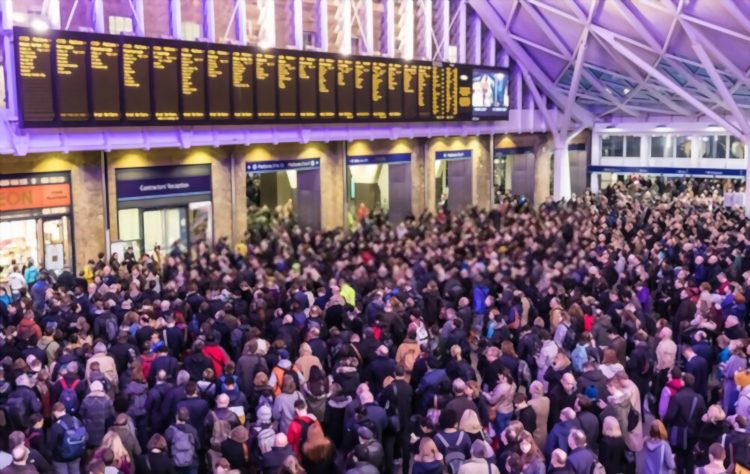What is the reason for the British public transport workers’ strike?
What effect has the issue of wages had on the expansion of British public transport workers’ strikes?
How much damage has the public transport sector strike caused to the UK economy?
Train strikes in London are spreading. Public transport workers in the British capital went on strike to protest wages and working conditions, causing chaos and disorder. After this strike, severe disruption occurred in all subway and bus lines, and dozens of bus routes in West London were out of order.
Public transport workers strike.
The train strikes in London have been over pay. Members of the RMT and Unite unions, who work on the subway and city trains, went on strike. Members of the Unite union on bus routes in the capital run by London are also on strike in a separate dispute over pay. RMT chairman Mick Lynch, who has probably been the most prominent supporter of the strikes, joined workers on the picket line.
Joining postal workers in Train strikes in London
Train strikes in London have spread to other sectors. The UK Conservative Party has repeatedly targeted these unions with solid criticism. Not long ago, rail transport in the UK was once again heavily affected by a one-day strike. With the continuation of the wave of labour strikes in the UK, the employees of the postal sector of this country also announced their plan to join the recent protest strikes of this country against economic and livelihood problems. In recent months, the increase in the cost of living and the lack of real growth in the wages of workers and employees in the UK has led the trade unions of workers in various industries of this country, from the railway sector to the airline companies, to hold a strike.
The spread of strikes due to the cost of living crisis
The train strikes in London are due to the cost of living crisis. These strikes are spreading in the UK as it faces one of its worst cost-of-living crises. According to Reuters, British postal workers also announced that they would hold strikes for four days in August and September to protest their rights. The Reuters news agency writes that the strike by postal workers is the latest action by industrial units in the country, whose workers demand higher wages to offset the effects of rising inflation.
The largest trade union protest in the UK
The train strikes in London are the biggest in the sector in the last thirty years. The Communications Workers Union, which is the leading trade union for pursuing the demands of communications workers in the UK and also represents the postal workers of this country, announced that on August 26th and 31st, as well as September 8th and 9th, more than 115,000 people The employees of the postal companies of this country will go on strike.
If these strikes are implemented, the union will mark the most significant trade union protest action that workers have carried out in the UK this summer. Dave Ward, general secretary of the union, said: “We are going to fight very hard here to get the pay rise our members deserve.” British postal workers will not meekly accept their living standards being battered by greedy business leaders who are completely out of touch with life in the modern UK.
The damage of strikes to the UK economy
The train strikes in London have damaged the UK economy. The experts introduced the strike action of the union of railway workers of the UK as a result of the dispute over the salary and employment contract with the government. The massive strike by the workers of the UK’s intercity railway lines in several significant cities has brought the country’s major cities to a standstill, including London. The CEBR has estimated the damage caused to the economy due to the strike at £91m and claimed that the British rail network has been facing acute





























